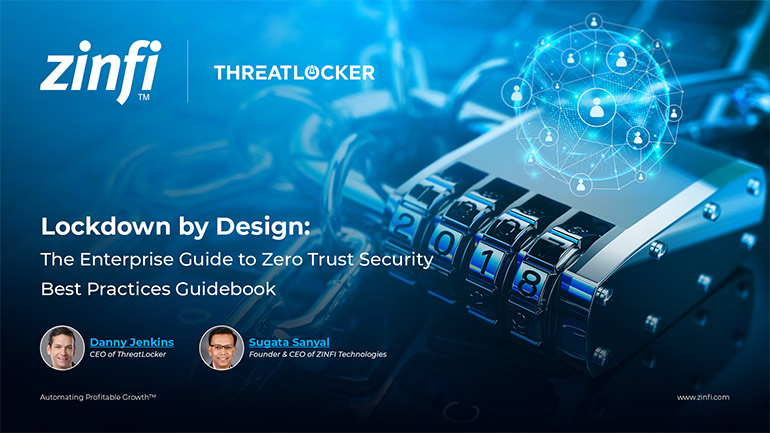This chapter critically examines the failings of traditional, reactive cybersecurity models against today's rapidly evolving and AI-generated threats. It champions the Zero Trust Security philosophy, emphasizing the crucial pivot to a "block first, permit later" approach. You'll learn why hardening the endpoint is paramount in an era of dissolving network perimeters and how implementing granular controls and the principle of least privilege can dramatically limit the impact of even sophisticated breaches. This foundational shift is essential for building resilient enterprise security.
Protect Your Business by Blocking First, Permitting Later.
Download your COMPLIMENTARY COPY of The Zero Trust Imperative: Fortifying Enterprise Security Against AI-Driven Threats Guide. Protect Your Business by Blocking First, Permitting Later.

Beyond the Dark Web: Zero Trust for Enterprise Security
Sugata Sanyal, Founder & CEO of ZINFI, discusses this in an insightful discussion with Danny Jenkins, Co-founder and CEO of ThreatLocker. With over 20 years in cybersecurity, Danny founded ThreatLocker on the principle of denying by default, offering an endpoint cloud protection platform that hardens digital environments. This conversation explores the shift from reactive detection to proactive protection, the changing landscape of attack vectors, cybercrime's organized nature, and AI's critical role in offense and defense for enterprise security.
Play It Now